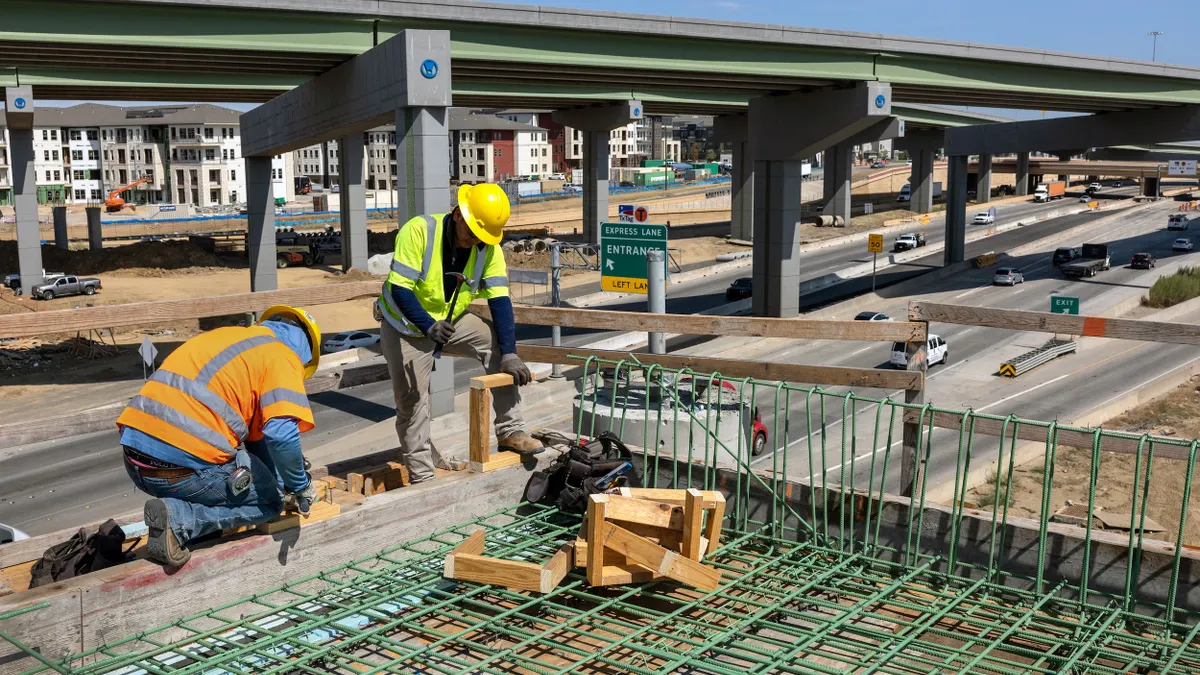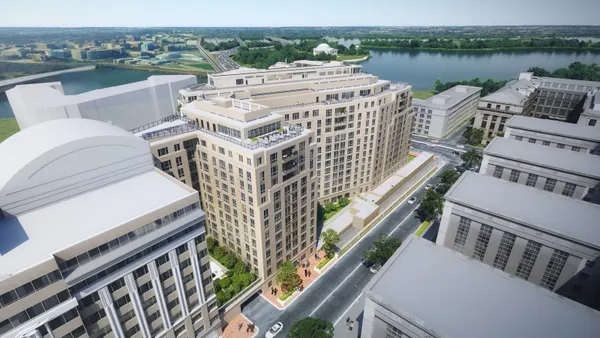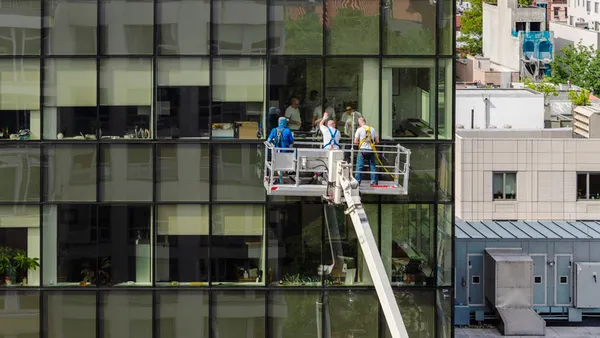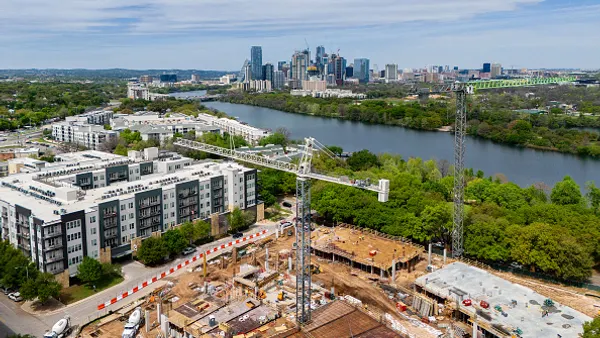Dive Brief:
- Adding to the slew of bad news for contractors in recent months, the prospects of two multibillion-dollar U.S. construction projects substantially dimmed this week, and a leading industry economist said he anticipates “more contractor layoffs through the rest of the year and indeed more firms closing” as the COVID-19 crisis wears on.
- Construction at FG LA's $9.4 billion Sunshine Project petrochemical plant in Louisiana has been put on hold due to the continuing impacts of the pandemic, the company said, while plans for Foxconn’s $10 billion LCD manufacturing plant in Wisconsin are all but dead, according to news reports.
- During Procore’s Groundbreak virtual conference yesterday, Associated General Contractors of America chief economist Ken Simonson told attendees that as money from PPP loans dries up and a realistic date for a widely available vaccine remains uncertain, economic conditions for contractors are likely to worsen. “We're seeing more and more weakness among different private, non-residential segments and also state and local government,” Simonson said.
Dive Insight:
The dire outlook for these major construction projects and the industry as a whole comes amid an increasing number of in-progress jobsites that have elected to go dark, rather than build to completion, as the pandemic enters its eighth month.
In Nashville, where construction was booming going into the pandemic, live sports and entertainment giant AEG recently confirmed it would halt its portion of the larger $1 billion Nashville Yards project due to uncertainty from the pandemic. And earlier this summer, the $3 billion Dallas-Fort Worth International Airport Terminal F project was halted amid anemic air travel, while construction on the $900 million Broward County Convention Center in Fort Lauderdale, Florida, was shelved indefinitely.
But the decision to stop construction at the Sunshine Project in St. James Parish, Louisiana, which when completed would be one of the largest petrochemical plants in the world, shows that the prolonged impacts of the COVID-19 pandemic have gone beyond the office, retail, hospitality and entertainment sectors to include more essential commodity industries as well.
Indeed, upon completion, the Sunshine Project plant would generate ethylene glycol, polyethylene and polypropylene, the building blocks of a variety of plastic products, including protective masks, according to the Baton Rouge Advocate newspaper. But FG LA, a subsidiary of Taiwan-based Formosa Plastics, said the unknowns of the pandemic’s duration, or when a vaccine will be available, contributed to the decision to stop building now.
"The widespread impacts of a global pandemic, including the challenge it creates in evaluating construction costs and the restrictions it has placed on international travel, are being felt across all industries and businesses, including FG,” said Janile Parks, director of community and government relations at FG LA, in an email. “As a result, FG has deferred major construction until the pandemic has subsided and/or an effective vaccine is widely available.”
Meanwhile, Foxconn’s $10 billion Wisconsin plant, which was touted by President Trump and former Wisconsin Governor Scott Walker as bringing manufacturing jobs back to the U.S., “looks dead,” according to industry consultant Ross Young, who was quoted in the EE Times.
The Wall Street Journal earlier reported on weakened prospects for the deal as Foxconn scaled back its plans, and Wisconsin held back promised subsidies, since the project hasn’t produced the jobs originally promised.
“Market conditions and the COVID-19 pandemic have altered the timing of our expansion, the specifics of our manufacturing plans and our product lines have changed,” Foxconn founder Terry Gou told the newspaper, although he also said he's open to continuing to partner with the state on the project.
Simonson's comments at Groundbreak highlighted the challenges that projects like these and others are facing in light of coronavirus-related issues.
“With fewer project announcements and a growing number of cancellations, my expectation is that firms will soon be laying off more workers than they'll be hiring,” said Simonson, who also pointed to rising material costs for contractors, even as bid prices have not increased amid heightened competition for fewer deals.
Overall, Simonson said pullbacks in construction could continue even until well after a vaccine is widely available.
“I think construction will be slower to rebound than other sectors,” Simonson said. “I think owners are going to be reluctant to go ahead with construction until they're convinced the demand is going to keep growing again.”













